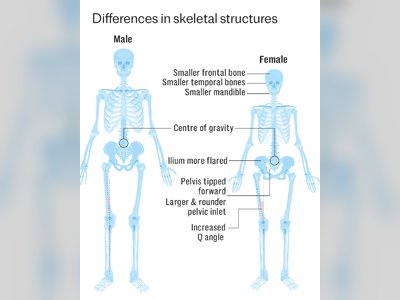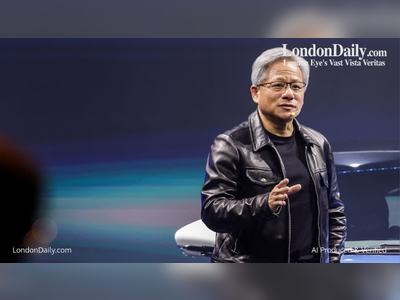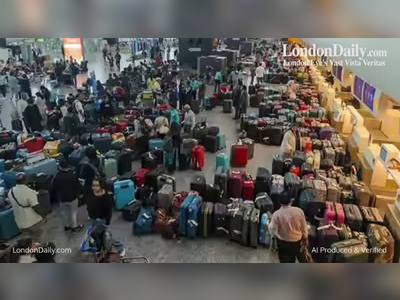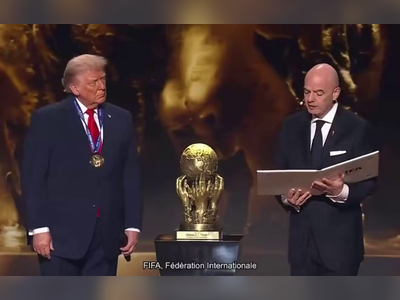Dutch Government Seizes Chipmaker After U.S. Presses for Removal of Chinese CEO
Nexperia takeover follows Washington ultimatum that it stay off the export blacklist only if Zhang Xuezheng is ousted
The Dutch government has taken control of the semiconductor firm Nexperia by invoking its emergency “Goods Availability Act,” following pressure from U.S. officials demanding the removal of its Chinese chief executive.
Court documents reveal that U.S. authorities had warned that unless Nexperia’s CEO, Zhang Xuezheng, was replaced, the company would be blacklisted, prompting the Dutch intervention to preserve export rights.
Nexperia is a Netherlands-based chip manufacturer owned by China’s Wingtech.
The Dutch action, first disclosed in a preliminary court ruling, added that U.S. officials flagged Zhang’s continuing authority as “problematic” in a June meeting with Dutch counterparts.
They indicated that only by ousting him could the firm qualify for exemption from the U.S. entity list.
Shortly thereafter, a Dutch court suspended Zhang and appointed an interim, non-Chinese executive under state supervision.
The takeover is a rare and aggressive move by the Dutch government, which cited “serious administrative shortcomings” and judged that key decisions at Nexperia could imminently threaten supply of critical chips to European users.
Though Wingtech retains ownership, the Dutch state now holds authority to reverse or block corporate decisions deemed harmful to European economic and technological security.
Nexperia’s regular operations are reportedly continuing under the new oversight.
Wingtech sharply condemned the seizure, framing it as politically motivated rather than risk-based.
It intends to pursue legal recourse and called on the Netherlands to respect basic corporate rights.
Meanwhile, Nexperia said it is negotiating with U.S. and Chinese regulators to mitigate the impact of export restrictions already imposed by both sides.
The Chinese government, which had earlier banned exports of Nexperia-assembled components from China, again criticized what it described as “legal robbery”.
The case marks a high point in the U.S.–China tech rivalry, as the Netherlands aligns domestic law with Washington’s export control strategy.
Observers warn that the intervention may provoke retaliation and deepen supply chain fragmentation across Europe and Asia.
As the legal challenges proceed, attention now turns to whether the Dutch state can maintain control over Nexperia in the long term and whether similar precedents will emerge elsewhere in Europe.
Court documents reveal that U.S. authorities had warned that unless Nexperia’s CEO, Zhang Xuezheng, was replaced, the company would be blacklisted, prompting the Dutch intervention to preserve export rights.
Nexperia is a Netherlands-based chip manufacturer owned by China’s Wingtech.
The Dutch action, first disclosed in a preliminary court ruling, added that U.S. officials flagged Zhang’s continuing authority as “problematic” in a June meeting with Dutch counterparts.
They indicated that only by ousting him could the firm qualify for exemption from the U.S. entity list.
Shortly thereafter, a Dutch court suspended Zhang and appointed an interim, non-Chinese executive under state supervision.
The takeover is a rare and aggressive move by the Dutch government, which cited “serious administrative shortcomings” and judged that key decisions at Nexperia could imminently threaten supply of critical chips to European users.
Though Wingtech retains ownership, the Dutch state now holds authority to reverse or block corporate decisions deemed harmful to European economic and technological security.
Nexperia’s regular operations are reportedly continuing under the new oversight.
Wingtech sharply condemned the seizure, framing it as politically motivated rather than risk-based.
It intends to pursue legal recourse and called on the Netherlands to respect basic corporate rights.
Meanwhile, Nexperia said it is negotiating with U.S. and Chinese regulators to mitigate the impact of export restrictions already imposed by both sides.
The Chinese government, which had earlier banned exports of Nexperia-assembled components from China, again criticized what it described as “legal robbery”.
The case marks a high point in the U.S.–China tech rivalry, as the Netherlands aligns domestic law with Washington’s export control strategy.
Observers warn that the intervention may provoke retaliation and deepen supply chain fragmentation across Europe and Asia.
As the legal challenges proceed, attention now turns to whether the Dutch state can maintain control over Nexperia in the long term and whether similar precedents will emerge elsewhere in Europe.











